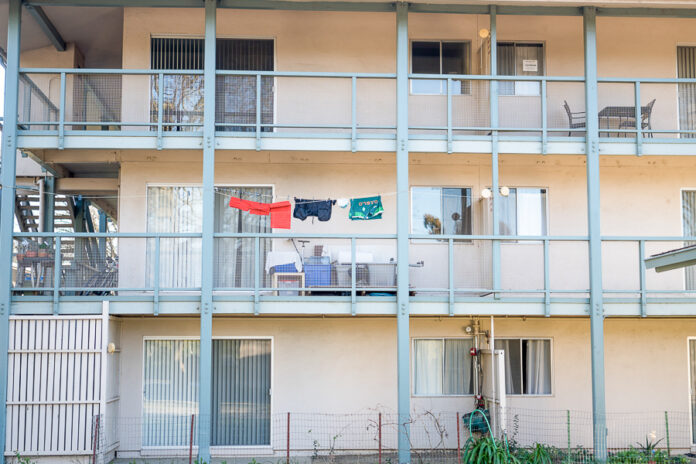As all research unrelated to COVID-19 is halted, graduate student programs are being extended and students are left in precarity
Since the beginning of the transition to online instruction for the UC Davis campus, graduate students have had to adjust to online learning as TAs or lecturers all while continuing their own studies, potentially extending their programs and, oftentimes, also watching their children.
“To have to be both parent and teacher and sort of taskmaster just to make sure that my own schedule gets completed, it’s exhausting,” said Colin Johnson, a PhD Candidate in performance studies.
Johnson isn’t alone in that struggle, which he called “nearly impossible.” It is estimated that about 400 UC Davis graduate and professional students have at least one child.
While parenting five children, seeing about 20 patients a week as a psychotherapist, supporting an advisor in research and researching and writing his own dissertation, graduate student in performance studies Eric Taggart also struggles with his many roles.
“It’s pretty tricky to be trying to educate our kids at the same time — five kids and five different grades from two different schools, and they all have different requirements,” Taggart said. “I’m also trying to make sure that the kids connect with their teachers, get three meals a day and stop harassing one another. We’re doing double or triple duty and the workload has definitely increased substantially.”
Though life has changed for both Taggart and Johnson, the fight for a Cost of Living Adjustment (COLA), which began before the switch to remote learning, has not stopped, it has just become more complex.
Graduate student lecturers and TAs who supported the COLA movement at UC Davis and other UC campuses were already in a difficult position, facing the loss of their jobs over grade withholding. Now, they’re in an even more precarious situation because of the dire need for financial support and medical insurance. Graduate students are stuck between a rock and a hard place as they decide whether or not to take part in the COLA movement on campus.
“I think what we’re going to see in the university is things that aren’t as important — or, in this case, the people who are making a fuss — are just going to be let go, because there’s not enough money anyway,” Johnson said.
This same sentiment was also expressed by Taggart.
“Whenever there’s precarity among citizens, institutions and governments and so forth usually use it as an opportunity to expand their power,” Taggart said. “[They] use it as an opportunity to decrease privacy protections, sometimes to decrease pay or make other sort of administration or policy decisions that wouldn’t be able to be made during normal times but can be made now. [These changes] then carry on into the future, and things don’t go back to how they were.”
In a public statement regarding the decision to end the graduate student grade strike, UCD4COLA said the following: “The pandemic only amplifies the underlying crisis, producing greater rent burden, increased housing and food insecurity, and underscores a lack of access to healthcare. Our demand for a COLA is more salient than ever before.”
The fear extends beyond just the graduate students’ time at UC Davis, due to worries of a potential recession. While those in science and technology programs are being fast-tracked, the state of jobs within humanities and the social sciences is unclear.
“I’ll probably be on track to finish my dissertation,” Johnson says. “My plan was [to finish] by the end of the summer, but I might not file my dissertation right away. Because the moment I file, my student loans come due and I lose my UC Davis health insurance.”
Though humanities students are able to continue working from home on their research and can still finish their programs on time, labs across campus have entered a “ramp down” phase that only allows research related to COVID-19 and maintenance.
Though people initially supported the university’s “ramp down” due to the importance of physical distancing and isolation, there is now a sense of “I want to get back to my research now,” explained Prasant Mohapatra, the vice chancellor of research,
First-year chemistry graduate student Anthony LaBarbera was not able to start his research before the “ramp down” phase began.
“Now, I’m [just] looking up every angle the reaction I was going to observe to have every backup plan imaginable,” he said.
LaBarbera said his principal investigator (PI) hasn’t expected many results from his research until after his first summer in the program. That said, LaBarbera may have to extend his time in graduate school depending on what happens this summer, when he doesn’t have TA responsibilities or classes.
“We can really just focus on our research,” LaBarbera said about summertime, adding that he’s not “too worried” about his timeline being pushed unless summer were to begin and he still couldn’t go into lab — at that point, he explained, he’d be thrown off “about a year.”
Following county and state-wide governmental guidance on how and when to resume normal research operation, Mohapatra expects a gradual return to research and “new normals.”
Written by: Jessica Baggott — campus@theaggie.org
Correction: A previous version of this article said that around half of all UC Davis graduate and professional students have a child. This was incorrect. It is estimated that around 400 UC Davis graduate and professional students have a child. The article has been updated to correct this error.









